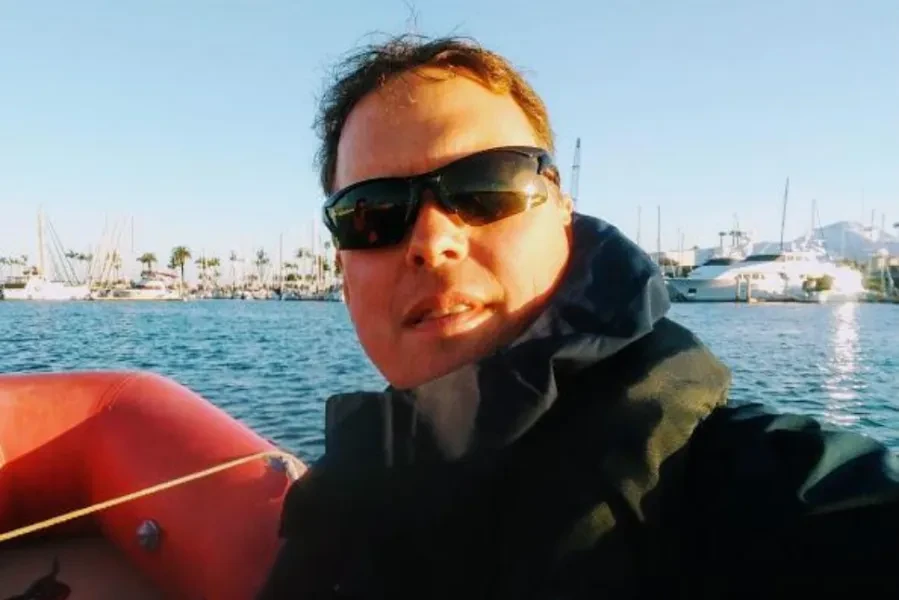Growing up surrounded by trees and lakes in rural upstate Michigan, it’s little wonder School of Business and Technology faculty and research fellow Dr. Murad Abel developed a lifelong love for the outdoors. However, in a community that depended mainly on logging and mining for income, what was surprising to many of Dr. Abel’s friends and family was his determination to get his doctorate.
“Everyone thought there was just no point in getting one in our town unless you simply liked to torture yourself,” says Dr. Abel.
Because career options were limited in the town of Escanaba, Dr. Abel discovered many young people fled to bigger cities when they got to a certain age. “For most of us, unless you become a local, you grow up here, you get a college education, you leave… and you don’t come back.”
Dr. Abel, however, did come back. Mostly.
Once the Michigan native completed his doctorate, he did in fact move away – to San Diego to work at Ashford University (now the University of Arizona Global Campus). Finding the cost of living to be a lot higher than in Michigan, Dr. Abel made it his mission to find a housing solution that suited his lifestyle.
“I love to sail, and eventually bought a boat,” Dr. Abel explains. “Then, I got rid of the apartment because it was so darn expensive. Being outdoors and being on the water are two things I love, so boat life really appealed to me. Once I started working completely virtually, I started thinking about how I could enjoy the beauty of California and still be able to afford a house.”
The best and most affordable solution for Dr. Abel was to keep the boat in San Diego as a liveaboard and invest in a home back in Escanaba by the Great Lakes he loved.
Now this assistant professor lives in both places, with slightly more time spent in Michigan as his official “home base.”
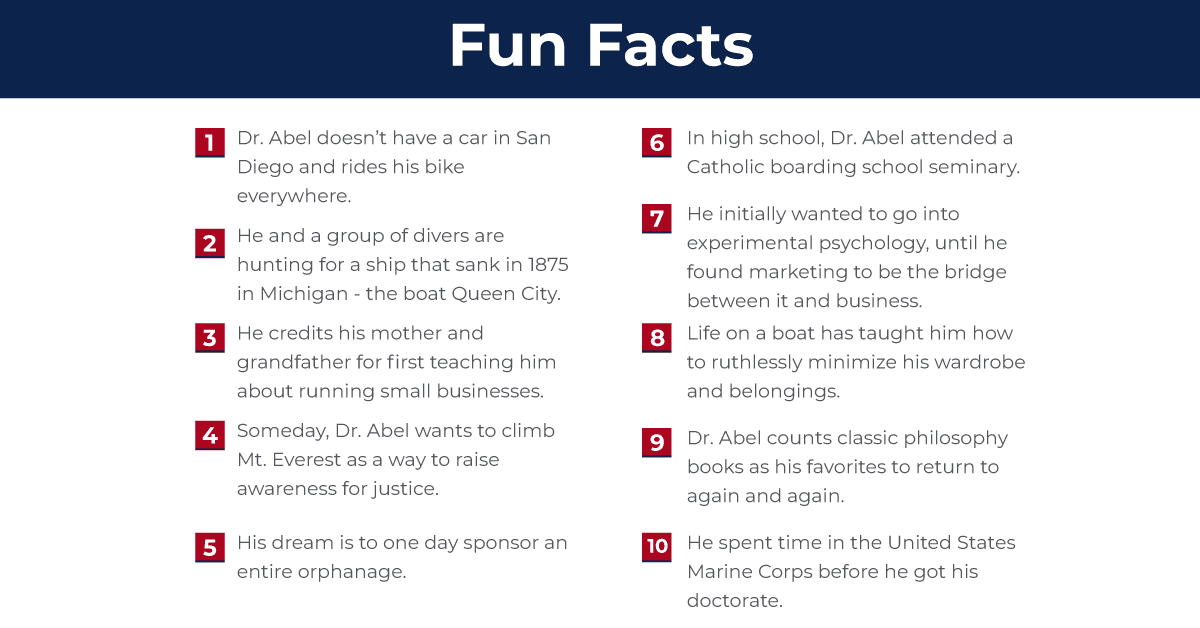
While on the West Coast, you’re most likely to find Dr. Abel biking along the shore or heading down the beach to get a cup of coffee. “I like to walk around in cutoff jean shorts, I’m that kind of guy. In San Diego, I wake up on my boat listening to sea lions, grab my laptop, and start work off the back of my boat.”
Back east his hobbies are equally outdoorsy but with a different emphasis. He hikes, rock climbs, skis, teaches, plays polo, goes diving (both in the ocean and the Great Lakes), boxes, and works as a volunteer firefighter.
He acknowledges the firefighting work can keep him on his toes. “Upstate Michigan is like Alaska,” explains Dr. Abel. “There are never enough resources. When there are accidents out here, sometimes we’re the first ones on the scene. Our search and rescue might be on ice. We may be going out on snowmobiles. Even if we call for helicopters, they may take a while to show up. So, we’re always brainstorming solutions to problems as we go.”
In his spare time, he works on a small business project of his own, Escanaba Polo Mallet Company, making handcrafted wooden polo mallets. “It’s something I’m trying to build up and be able to give it to my kids down the road,” says Dr. Abel. “Through it, I donate a lot of the profits to charity.” Much of the profits go to helping orphans in Mexico through an organization called Corazon de Vida, as well as raising money for horse rescue efforts.
“If I ever build it into a real company, I’d like to invest in local enrichment programs in the small town I live in,” says Dr. Abel. “But when I say this, I have to say I’d never give up what I’m doing now. Even if I had a massive company, I can’t see myself ever giving up teaching, because I love it.”
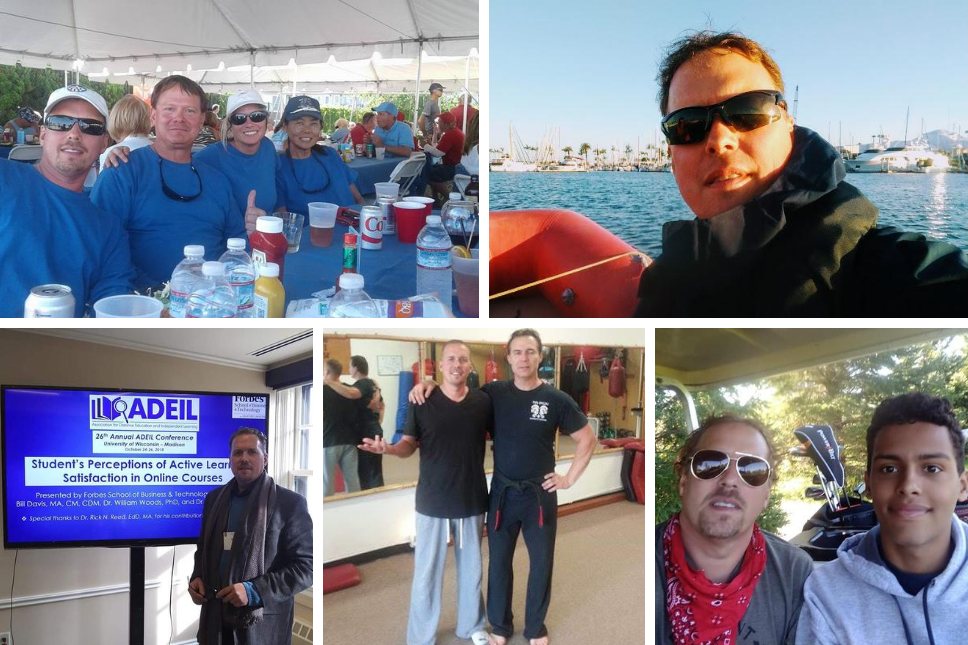
Getting to know Dr. Murad Abel
Global Campus: What do you see as the benefits of earning a doctorate and/or the value in pursuing a grad degree?
Dr. Abel: I’ve found that education helps you in multiple areas in life, and it’s not always financially. For instance, I’ve read that a high percentage of people working in startups have PhDs. They’re hired for these positions because education helps you in the way you think about things. It helps in the way you make decisions and interact with the world in general.
Higher education creates more neural networks in your brain and you just start thinking about things differently. It’s not just a cultural shift; I think there’s an element where it’s a biological shift based on the networks that you create in your brain. That’s what learning is — new connections and getting new information. Of course, just adding more knowledge on top of your existing belief system doesn’t necessarily change your core personality, but you can change your way of thinking.
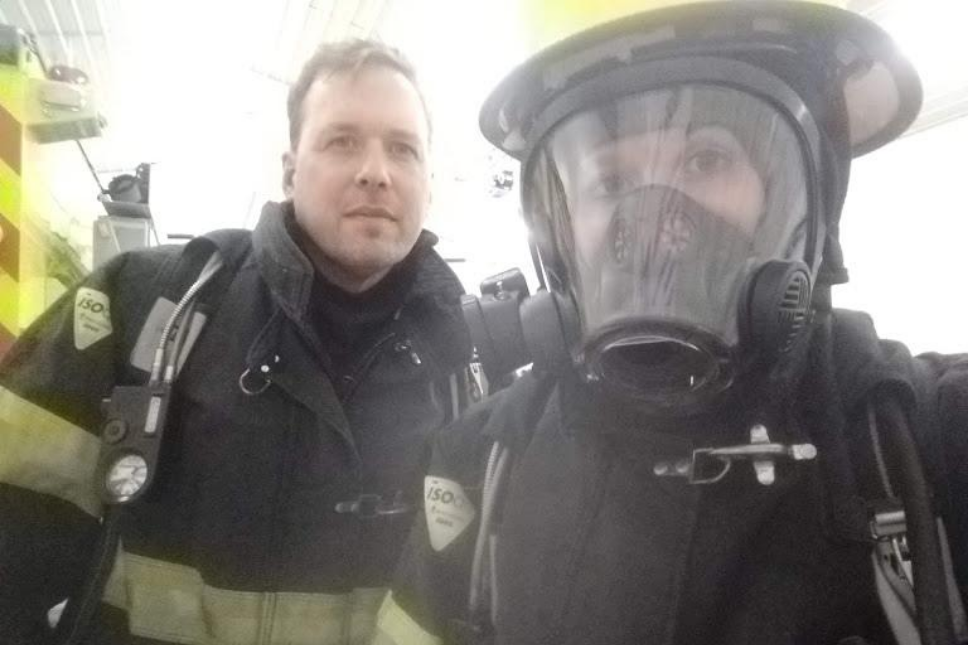
Dr. Abel gives back to the community in many ways, including as a volunteer firefighter.
Ideally, education can start to free you from your pre-existing beliefs and challenge them a bit. Many of us may never reach self-actualization and you don’t have to get a degree to do it, but a degree certainly helps you start thinking about the world in different ways.
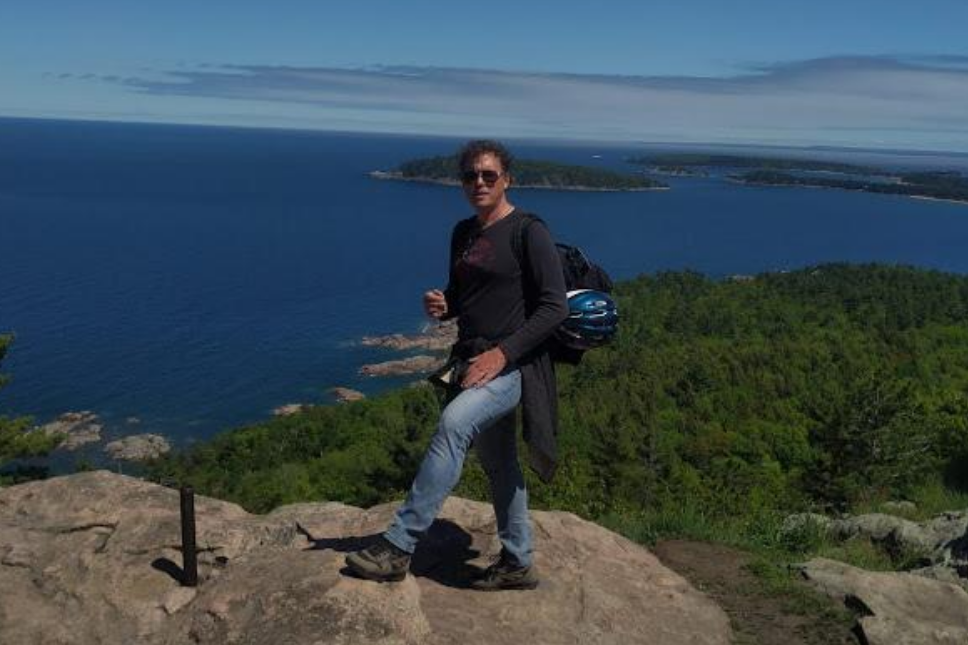
Dr. Abel enjoyed spending as much time outdoors as possible.
Global Campus: As a research fellow, you get to see all the doctoral research that comes through from UAGC students. Why do you see research as an important component to achieving a PhD?
Dr. Abel: I think research is the way to go in the future, no matter what job you have. It’s all about solving problems and applying information data into the workplace. Information comes at us very fast these days and I believe companies and our governments will want more innovation. If you don’t have basic research skills and ways to apply that knowledge in the workplace, you’re going to be dead in the water. Even if you don’t conduct the research yourself, when you get into your job, you’ve got to be able to analyze that information and make good decisions if you want to move up into senior management.
Those that can look at actual research and then be able to apply that in their businesses, they have what it takes to be successful. When you come up against a challenge in the industry you’re working in, the people that are going to be most successful are the ones that can take information and come up with solutions.
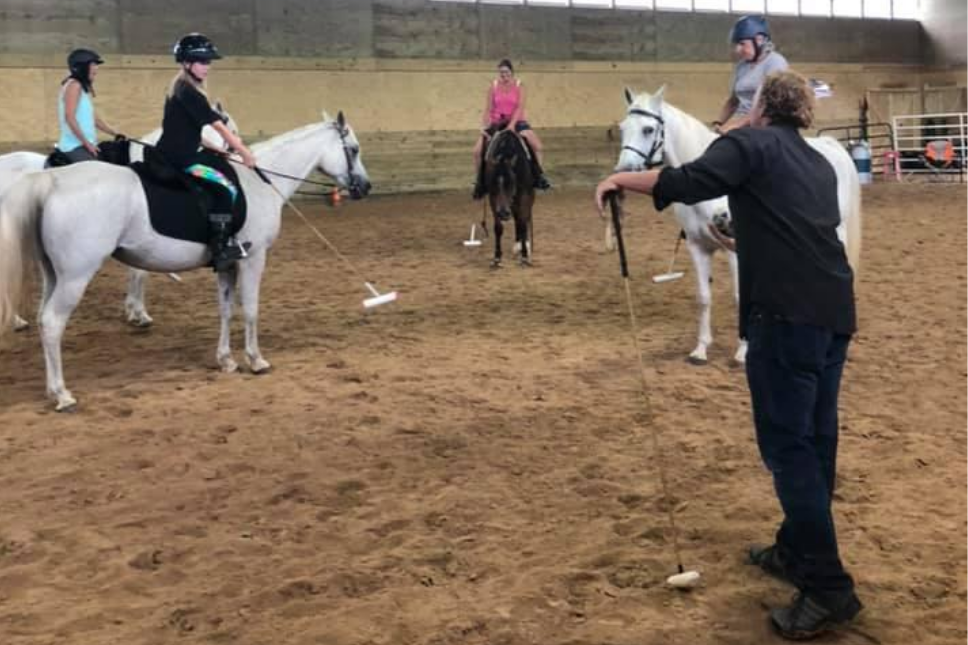
Dr. Abel enjoys a number of activities including the sport polo.
Global Campus: How do you encourage students who may be struggling in their educational journey?
Dr. Abel: When I see this happening, I go back to that question of “What are you here for? Why are you going for your degree?”
Some students really want the degree and really want to learn, but they don’t have the background in successfully learning. Our primary education systems aren’t necessarily known to provide those type of skills. They’re more aligned with the past — with the industrial age — and are not aligned with this creative new world we live in.
So, a lot of times when students come from certain backgrounds such as poverty or limited opportunities, they may not be immediately equipped with the skills needed to take on higher education learning.
So, first I look to see if they have the skills needed to do this. If they don’t, then we work on teaching them those skills so they can be successful in learning.
If I do think they have the skills, but they don’t have the motivation, I question them to see exactly why they’re learning. The key is to tie in their motivations to a goal or something that’s important to them. That helps put their education into context so they can motivate themselves to read, to learn, and to do their assignments.
As a professor, you want to use real-life examples that students understand and that can be used in their workplaces. The more you make their education relevant to them, the more they can see themselves needing to know what they’re learning.
--
Written by University Staff
